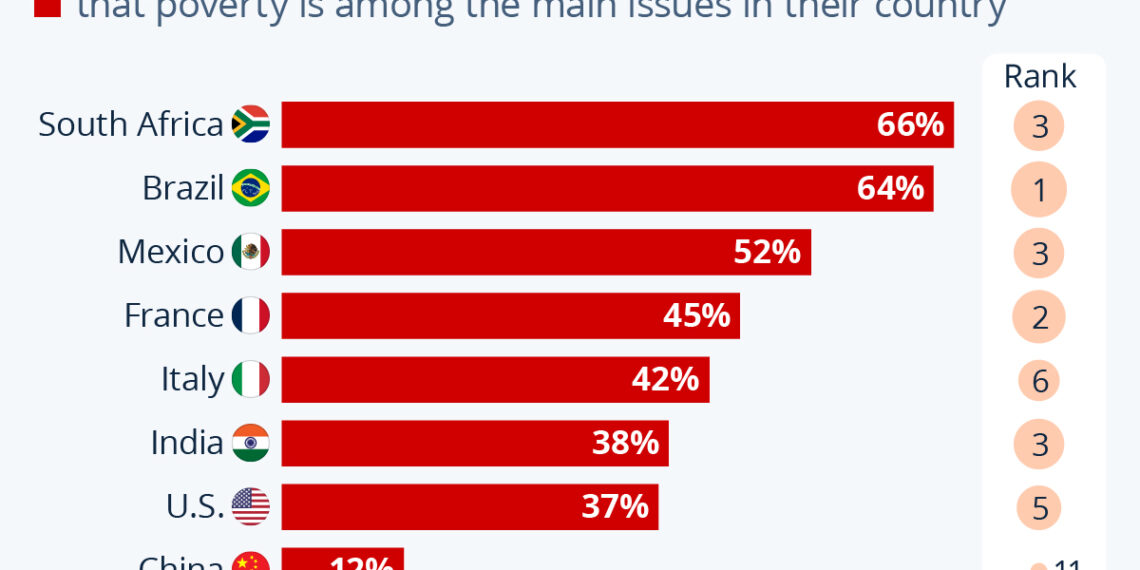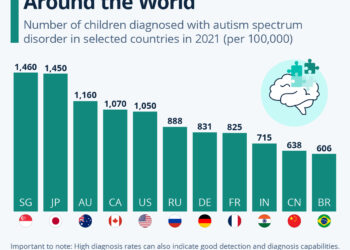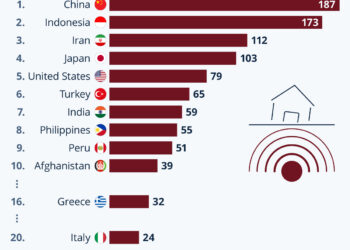Understanding Global Perspectives on Poverty
Poverty remains one of the most pressing issues on the global stage, affecting millions of lives and shaping socio-economic landscapes across continents. Recent data from a Statista survey has highlighted how differently regions perceive poverty as a significant problem, revealing intriguing insights into societal attitudes towards this persistent issue.
Poverty in Latin America and South Africa
High Sensitivity to Poverty
In Latin America and South Africa, the issue of poverty is acutely acknowledged, with survey results indicating that between 50% and 66% of respondents identified it as a major domestic problem. This overwhelming recognition places poverty firmly within the top three concerns for individuals in these regions.
Socio-Economic Factors
Several socio-economic factors contribute to this heightened sensitivity. High unemployment rates, inflation, and lack of access to basic services like education and healthcare exacerbate the poverty crisis in these areas. As a result, citizens are more likely to feel the ramifications of poverty directly in their communities, leading to a amplified awareness of the issue.
Perspectives from Europe
Diverse Recognitions
Interestingly, Europe, often perceived as a more developed region, also recognizes poverty as an urgent issue, albeit at varying levels. In countries like France, 45% of respondents classified poverty among the major domestic issues, with Italy following closely at 42%. Finland, Spain, and the Netherlands presented similar sentiments, with figures hovering around 40% to 44%. Despite the relatively better socio-economic conditions, these countries still see poverty as a priority concern.
Historical Context and Welfare State Dynamics
The recognition of poverty in these European nations may stem from historical contexts as well as public welfare policies. While many European countries have robust welfare systems aimed at alleviating poverty, societal awareness remains crucial to ensuring these systems function effectively. The ingrained social democracies in these nations lead to ongoing discussions about wealth distribution and social equity, keeping the topic of poverty in public discourse.
Attitudes in Asia
Emerging Economies Perspective
The survey results indicate a varied perception of poverty in Asian countries, primarily among emerging economies. For instance, in India, 38% of respondents highlighted poverty as a critical issue, ranking it third among their most pressing concerns. This acknowledgment aligns with the country’s ongoing struggles with economic disparity and regional disparities in wealth distribution.
Contrasting Views in China
Conversely, China presents a stark contrast with only 12% of respondents naming poverty as a significant issue, ranking it 11th. This low percentage could reflect the country’s rapid economic development over the last few decades, which has lifted millions out of poverty. However, it also raises questions about the ongoing inequality and whether the benefits of economic growth are reaching all citizens.
Insights from the United States
Moderate Concerns in a Developed Economy
In the United States, a notable 37% of respondents identified poverty as one of the key issues facing the country today, placing it fifth on the list. This recognition showcases an awareness of poverty amidst high levels of wealth and resources, indicating that even in developed economies, the problem persists and continues to affect lives.
Political Climate and Discussion
The political discourse surrounding poverty in the United States often varies by administration and policy, influencing public perception. Issues such as healthcare accessibility, minimum wage debates, and educational opportunities all intertwine with poverty, making it a topic of continual relevance.
Global Implications of Poverty Awareness
The Need for Cooperation
As these survey results highlight varying attitudes towards poverty across different regions, the findings underscore the necessity for global cooperation in addressing the issue. Each region has unique challenges and solutions, and sharing insights can lead to more effective strategies for poverty alleviation worldwide.
Collective Responsibility
Raising awareness about poverty’s pervasive impact on societies can galvanize communities, policymakers, and international organizations to take collective responsibility. Whether through advocacy, policy changes, or community engagement, a united front against poverty can initiate significant progress towards eradicating this long-standing issue.
Continued Dialogue
The diversity of opinions regarding poverty underscores the importance of continued dialogue and awareness-raising initiatives across different societies. Understanding perceptions of poverty can guide effective strategies and foster a global community committed to tackling this critical issue.






